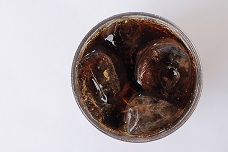IT MAY be common knowledge that regular consumption of sugar-sweetened beverages will eventually lead to health issues. According to a review of epidemiological studies published in the Journal of the Endocrine Society, as few as two servings every week may contribute to the development of diabetes, high blood pressure, among other health problems.
The analysis found a link between sugar-sweetened beverage consumption and the metabolic syndrome—a cluster of risk factors that raise the chances of developing heart disease, stroke and diabetes, according to the Hormone Health Network. The risk factors include abdominal obesity, high levels of fats in the blood known as triglycerides, elevated blood pressure, high-fasting blood sugar and reduced high-density lipoprotein (HDL), or good, cholesterol levels.

As few as two servings of sugar drinks a week can contribute to health issues. There is a need to educate the public further on the impact of excessive consumption of sugary drinks like soda, and even fruit juice, on health
The World Health Organization estimates that cardiometabolic conditions such as the metabolic syndrome and diabetes result in 19 million deaths a year.
“Sugar-sweetened beverage consumption is steadily rising among all age groups worldwide,” said the review’s senior author, M. Faadiel Essop, Ph.D., of Stellenbosch University in Stellenbosch, South Africa. “Our analysis revealed that most epidemiological studies strongly show that frequent intake of these beverages contributes to the onset of the metabolic syndrome, diabetes and hypertension.”
The authors reviewed 36 studies on the cardiometabolic effects of sugar-sweetened beverage consumption from the past decade. Since some recent studies reached conflicting findings regarding the relationship between beverage consumption and health conditions such as diabetes and heart diseases, the researchers critically assessed the research landscape for overall trends.
Although there were some studies with negative or neutral findings, most of the studies supported a link between sugar-sweetened beverage consumption and the risk of developing the metabolic syndrome. Most of the analyzed studies looked at individuals who drank more than five sugar-sweetened beverages a week.
Studies on diet and diabetes revealed consuming as few as two servings of sugar-sweetened beverages a week was linked to an increased risk of developing type 2 diabetes. Several of the analyzed studies found drinking at least one sugar-sweetened beverage a day was associated with elevated blood pressure.
“The findings demonstrate there is a clear need for public education about the harmful effects of excess consumption of sugar-sweetened beverages,” Essop said. “But our understanding of this topic would benefit from additional research to further clarify how sugar-sweetened beverages affect our health. We do see some limitations in the current research on this topic, including a need for longer-term studies and standardized research methods.”
Other authors of the review are Gaurang Deshpande and Rudo F. Mapanga of Stellenbosch University. The work was supported by South Africa’s National Research Foundation and Stellenbosch University.
The review, “Frequent Sugar-sweetened Beverage Consumption and the Onset of Cardiometabolic Diseases: Cause for Concern?”, will be published online at https://academic.oup.com/jes/article-lookup/doi/10.1210/js.2017-00262.

 iConnectHub
iConnectHub
 Login/Register
Login/Register Supplier Login
Supplier Login


























